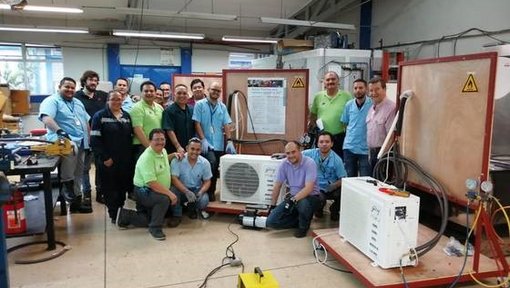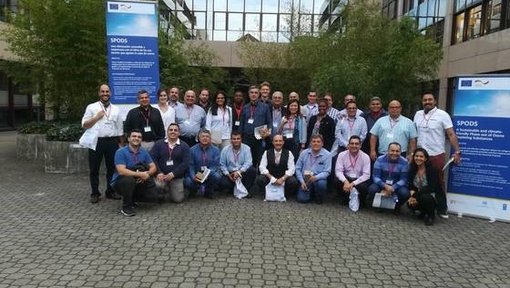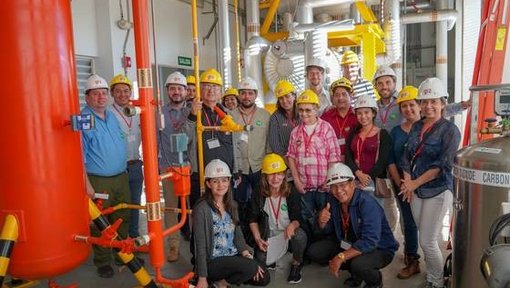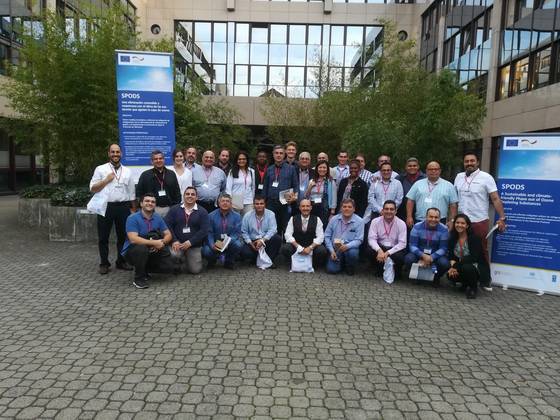In late October almost 30 stakeholders from Latin America and the Caribbean participated in the trip in Germany. The study tour aimed at raising awareness of the climate impact of currently applied HCFC/ HFC refrigeration practices in the region and discussing natural refrigerant cooling solutions to assist selected countries to fulfill their HFC mitigation obligations under the Montreal Protocol.
The tour was organized and funded by Proklima and the co-financed project of the BMZ and the European Union “A Sustainable and climate-friendly Phase out of Ozone Depleting Substances (SPODS (Ouvrira une nouvelle fenêtre))”.
Partners from the private sector, governments and representatives from the United Nations Industrial Development Organization (UNIDO (Ouvrira une nouvelle fenêtre)) and the United Nations Development Programme (UNDP (Ouvrira une nouvelle fenêtre)) visited various climate-friendly cooling solutions and a vocational training center for refrigeration technicians. Throughout the tour, the participants created a strong stakeholder network committed to push along green cooling technology by facilitating the market introduction and forcing an improvement of the capacity building of refrigeration technicians.




